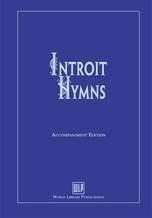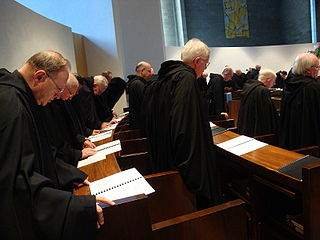So, hi. It’s been a while. My break has unfortunately been nearly as frazzling as school, with just as many thousands of things to do, but without the enforced structure of the academic week. I’ve had a lot of things on my mind, not least among them the Church. So I have several items to share. I’ll try to pace myself and not dump them all on you at once.
It is good to be back in my academic, and Catholic, home. My church is such a comfort to me. Daily Mass centers my day, and my week, on Christ. Despite that, I lost my Magnificat again a couple of weeks ago, throwing my daily routine into disarray. I’d grown accustomed to it for my morning and evening prayer, the bookends to my day. It gave me such peace to devote my day to the Lord at its beginning, and to go to him again at its end in the joy of thanksgiving, or the comfort of penitence. And suddenly, my guide in that devotion was gone. The good thing about it was, it forced me to do what I had been meaning to do for a long time: introduce myself into the actual Liturgy of the Hours. (I’ve been using the Universalis app for my new iPad.) And I’ve found in it such a deep, such a steadfast, such a constant companionship with the Lord. (Then, once again to the credit of my parish: After nearly a whole week of being missing, my Magnificant mysteriously showed up again in the book holder of the pew behind where I usually sit, where a man who remembered my carrying one pointed it out.)
 As I mentioned not too long ago in a comment, our parish uses a very cool hymnary that sets the Church’s prescribed entrance antiphons (introits) to the music of established and respectable hymns. (I reckon this is the one: Introit Hymns for the Church Year Accompaniment by Christoph Tietze.) Many parishes, such as the one in my hometown, simply dispense with the prescribed introits as stuffy or unwieldy and replace them with hymns of their own choosing — something that apparently was allowed in limited circumstances by the 1970 Missal, but which many have gone over and beyond, to the regret of those of a more traditional, liturgical bent. The cool thing about what our church does is that we use the Church’s traditional introits as prescribed in the Missal, while losing the perceived stuffiness and unwieldiness of singing them in Gregorian chant, and yet retaining, in setting them to traditional hymns, a very traditional, churchy feel that many contemporary hymns lose. We’ve used many tunes that were familiar to me as a Protestant, some of Wesleyan or Lutheran origin.
As I mentioned not too long ago in a comment, our parish uses a very cool hymnary that sets the Church’s prescribed entrance antiphons (introits) to the music of established and respectable hymns. (I reckon this is the one: Introit Hymns for the Church Year Accompaniment by Christoph Tietze.) Many parishes, such as the one in my hometown, simply dispense with the prescribed introits as stuffy or unwieldy and replace them with hymns of their own choosing — something that apparently was allowed in limited circumstances by the 1970 Missal, but which many have gone over and beyond, to the regret of those of a more traditional, liturgical bent. The cool thing about what our church does is that we use the Church’s traditional introits as prescribed in the Missal, while losing the perceived stuffiness and unwieldiness of singing them in Gregorian chant, and yet retaining, in setting them to traditional hymns, a very traditional, churchy feel that many contemporary hymns lose. We’ve used many tunes that were familiar to me as a Protestant, some of Wesleyan or Lutheran origin.
And then today, our introit had a distinctly Southern feel. I could imagine, as we sang, the blue-haired old lady at the organ (not Ms. Betty — her hair is not quite blue), the good Baptist men and women in the pews around me (honestly, we Southern Catholics don’t look or dress much different than our Baptist brethren). I looked down at the byline. “McKee”. African American spiritual. No wonder it sounded Southern. The tune, as it turns out, has even older origins in an Irish folk tune, before it was adapted by African American slaves here in the South. How fitting it is, I thought, that we would sing it here today — the most ancient and exalted words of Scripture and the Roman Missal, set to the music of Southern slaves and common folk.
How fitting it is, too, that the tune of “McKee” was also set to such a hymn of communion and reconcilation as “In Christ There is No East or West”:
In Christ there is no East or West,
in him no South or North,
but one great fellowship of love
throughout the whole wide earth.
In Christ there is no East or West, North or South. Though there are still so many earthly divisions between us, the fact of us, Americans of evangelical Protestant background and descent, having reunited with Rome, is a testament to our longitudinal progress towards communion in Christ. And the divide between North and South — so ever-present in the memory of my city and state and region, especially to me as a Southern historian — is so completely bridged and blotted away by the Gospel of Christ, especially in his visible, Catholic Church, which covers all the world.
In him shall true hearts everywhere
their high communion find,
his service is the golden cord
close-binding all mankind.
Join hands, disciples of the faith,
whate’er your race may be!
Who serves my Father as a son
is surely kin to me.

Bishop Joseph Oliver Bowers (b. 1910, Dominica), the first African bishop consecrated in the United States.
I looked around me as we sang. At the end of the next pew was an African American family. There are not very many in our parish; demographically our town, whether including or excluding the University’s student body, is predominantly white by far. Historically in the South, voluntary segregation between the races has continued within evangelical Christianity. Black people go to their own churches and white people go to theirs; there are even whole white and black denominations. I am blessed and thankful to have grown up in an ethnically diverse church with a long tradition of racial harmony; for many other Southerners, this hasn’t been the case. In the Catholic Church, I suspect there has been at least a little more racial diversity than elsewhere in the Deep South — the Church first established itself in more racially diverse, coastal, urban (and founded by the French) areas such as New Orleans and Mobile; Bishop Joseph Oliver Bowers, the first African bishop consecrated in the United States, was consecrated in Mississippi in 1953. But by and large, as the Church has moved into the upland South, it has been slow to take hold with traditionally evangelical African Americans. There are no black people in my RCIA class. But I pray, as racial division is healed in so many other ways in the South and throughout the U.S., that African Americans can find hope and healing and welcome in the Mother Church as I have.
In Christ now meet both East and West,
in him meet South and North,
all Christly souls are one in him,
throughout the whole wide earth.
May it truly and ever be so. May we find, too, reconciliation in Christ across political and cultural and regional and sectarian lines, the South with the North and the East with the West — between Protestants and Catholics, and Catholics and Orthodox. May we truly be one Body in Christ.

